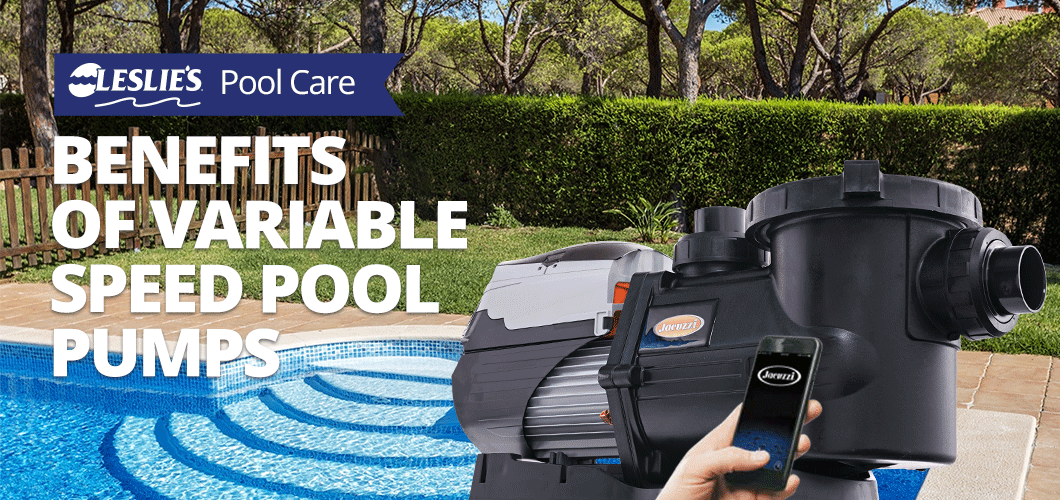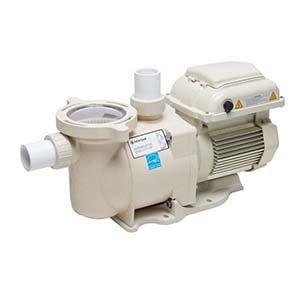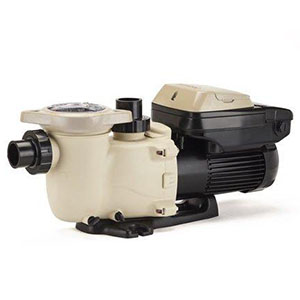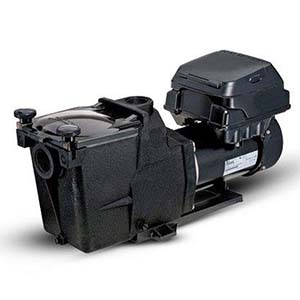
Benefits of Variable Speed Pool Pumps
Your pool pump is extremely important. That’s why choosing the right type of pump is one of the most key decisions you will make for your pool — and your wallet. A recent trend among pool owners is to install a variable speed pool pump. These pumps are a great option for many pools, and have been steadily increasing in popularity, especially in recent years. As of July 19, 2021, new federal regulations now require manufacturers to produce pool pumps that meet or exceed minimum energy efficiency requirements. In short, single speed pumps greater than 1.0 total horsepower (THP) have been phased out. More efficient variable speed pumps are gradually replacing these less pumps in residential applications. You can learn more about the new legislation on our blog, Pool Pump Regulation Changes for 2021.
Not sure where to start? No problem. We’ll help you learn about the benefits of variable speed pumps. You can then use that information to decide if one is right for you and your pool.
Key benefits include:



Variable Speed Pool Pumps Save Energy and Money
This is obviously the most important benefit of variable speed pumps. Single speed pool pumps operate at full horsepower whenever they’re on. But with a variable speed pump, you control the speed. This allows the pump to run at lower speeds when not handling more demanding tasks.
Variable speed pumps are extremely efficient, and many are Energy Star Certified. This efficiency saves you money through lower utility bills and, in some cases, rebates. And more money in your wallet is never a bad thing.
But are the savings really enough to justify the higher upfront cost? The short answer is yes! Variable speed pool pumps have been known to save as much as 80% in annual energy costs in some cases. For many pool owners, this means you can cover the cost of the pump over the course of a couple years.
See just how much you can save by plugging in your state and the details of your pool to our energy savings calculator.
For more information on the energy savings tied to variable speed pool pumps, check out this helpful video:
PRO TIP: Variable speed pumps may qualify you for utility rebates from your power company. Contact your utilities provider to learn about special programs they may offer in your area.
Variable Speed Pumps Comply with Federal Regulations
In addition to saving you money, the energy savings also ensure that you are following federal and state regulations.
Starting in July 2021, pool pumps must comply with minimum federal efficiency standards. Pumps that don't meet these standards cannot be manufactured, which means variable speed pumps are fast becoming the pool pump of choice for new and replacement inground pool equipment. The requirements are part of a mandate from the Department of Energy that focuses on minimum efficiency standards for U.S. homes and businesses.
PRO TIP: Learn more about the regulations going into effect in 2021 and how they might impact you and your pool. For questions or additional information, contact or visit your local Leslie’s store.
Variable Speed Pumps Bring Efficient, Quiet Filtration
With variable speed pumps, your water is essentially moving and filtering all day, often at slower speeds. Moving water is healthier water, and slower water flow allows your filter to more easily grab debris and fine particles.
Those slower speeds also mean a quieter operation. Some single speed pumps create quite a bit of noise when they’re running. This isn’t always ideal for you or your neighbors. By programming the pump for faster speeds only when needed for demanding tasks, this means your pool can be the source of peace you crave more often.
Programming Options are Easy and Convenient
Speaking of having a quieter, more peaceful pool, many variable speed pool pumps come with standard programming features. Programming the pump allows you to fully control when and how your pump operates.
You can program your pump to switch speeds automatically, run at higher speeds only during the times you set, and adjust for functions and features that require higher speeds. These situations might include vacuuming, turning on water features, running the pool cleaner, increasing the turnover rate during hot weather, and more.
And with the advancements in technology, programming your pump is relatively simple and convenient. For most systems, you program the pump right there on the equipment itself. For modern pumps with advanced connectivity and automation features, you can use your smartphone, smart watch, or even your favorite voice assistant — such as Amazon Alexa, Google Assistant, or Apple Siri — to run a customized pump cycle.
As you can see, there are so many reasons why variable speed pumps are a great option for any pool owner. Whether you're looking to switch from a single speed, or whether you're looking to upgrade your existing variable speed pool pump, the energy savings and customizable settings make them an appealing choice.
Looking for a specific pump that will fit the unique needs of your pool system? Check out Leslie’s full selection of variable speed pumps online, or stop by your local Leslie’s. Our in-store pool experts are here to answer any questions you might have about variable speed pool pumps. If you're ready to upgrade, we can even help you schedule a professional installation for your new pump.


